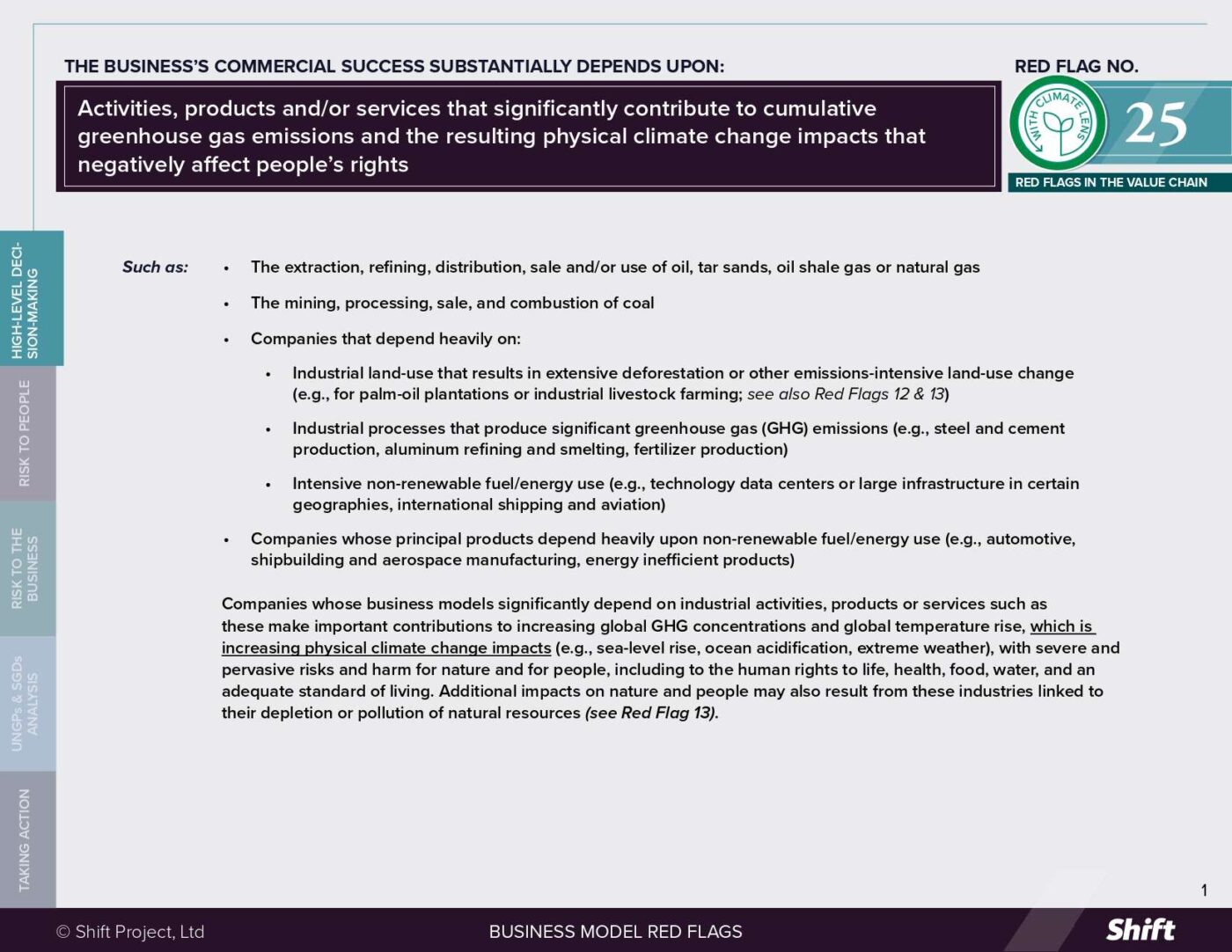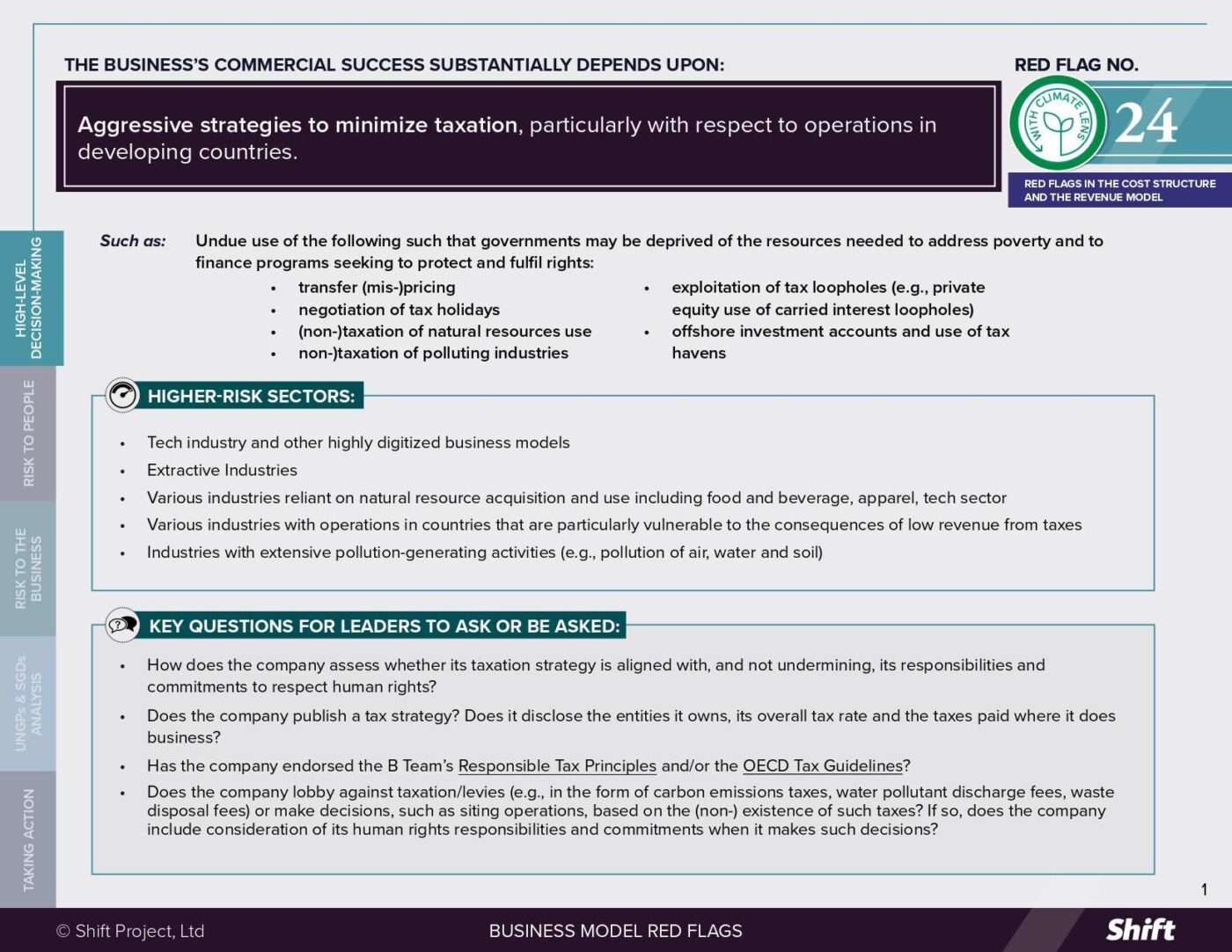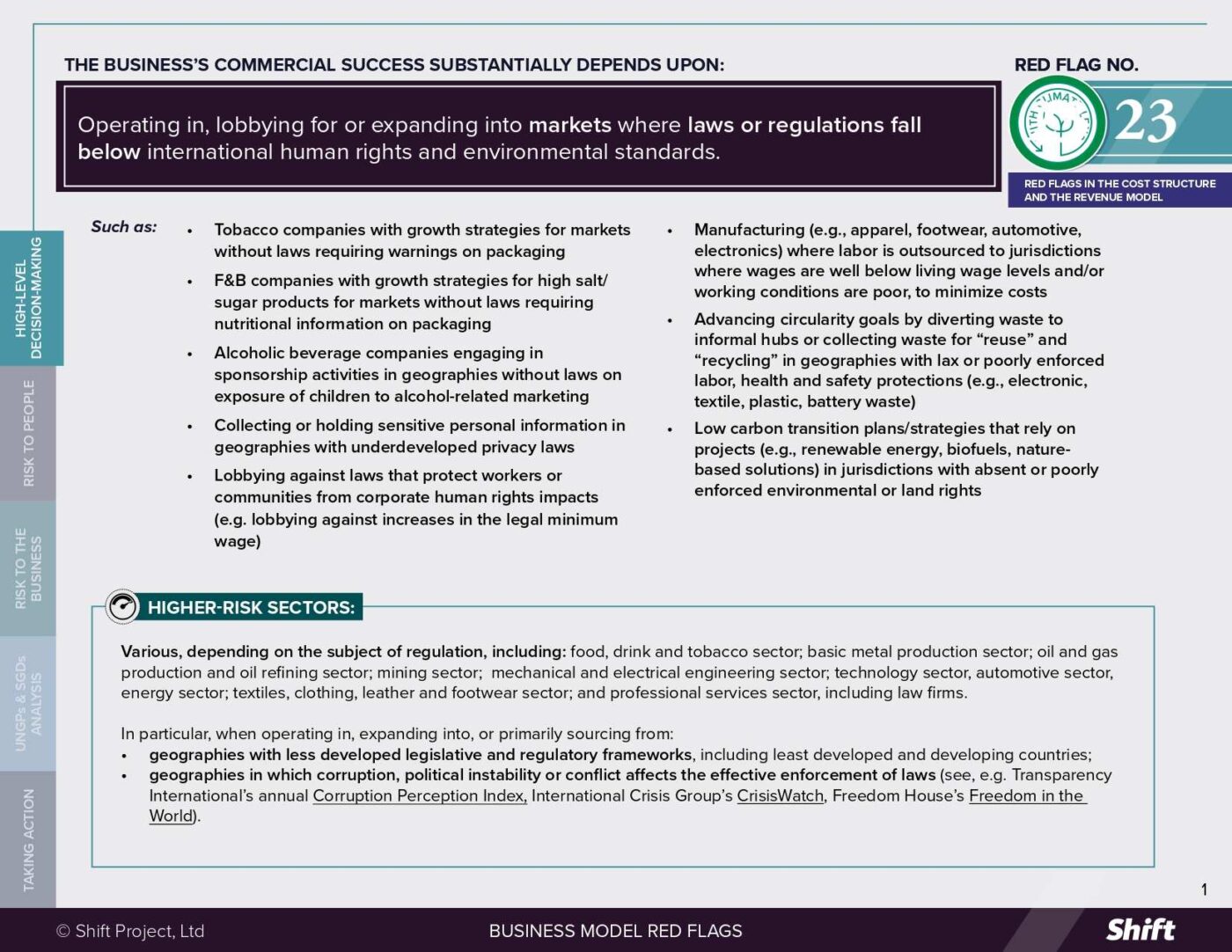The UK Financial Reporting Council issued its guidance in June 2014.
Introduction
The UN Human Rights Council unanimously endorsed the UN Guiding Principles on Business and Human Rights in June 2011. In September 2013, the UK Government was the first EU Government to issue a national action plan entitled Good Business – Implementing the UN Guiding Principles on Business and Human Rights (the “Implementation Plan”). This Implementation Plan states that, “from 1 October a clarification of the Companies Act 2006, means that company directors will include human rights issues, in their annual reports.” This also builds on the Government’s intention, set out in 2010, to, “ensure that directors’ social and environmental duties have to be covered in company reporting.” [Document no longer available online.]
The Companies Act 2006 (Strategic Report and Directors’ Report) Regulations 2013 (the “Regulations”) amend existing company law requirements and became effective on 1 October 2013. The main change introduced by the Regulations is a requirement for certain companies to prepare a strategic report as part of their annual report. The new requirements apply for periods ending on or after 30 September 2013.
Section 414C(7)(b) of the Regulations provides that:
In the case of a quoted company the strategic report must, to the extent necessary for an understanding of the development, performance or position of the company’s business, include—
- the main trends and factors likely to affect the future development, performance and position of the company’s business, and
- information about—
- environmental matters (including the impact of the company’s business on the environment),
- the company’s employees, and
- social, community and human rights issues, including information about any policies of the company in relation to those matters and the effectiveness of those policies.
In August 2013, the Financial Reporting Council (“FRC”), upon request by the Department for Business, Innovation and Skills (“BIS”), issued non-mandatory guidance supporting the strategic report requirements in the new Regulations (“Guidance”). The FRC invites comments on all aspects of the draft by 15 November 2013. See final guidance here.
The Guiding Principles establish the authoritative global standard on the respective roles of business and governments in seeking to ensure business respect for human rights. They have been incorporated or reflected in other global standards, such as the OECD Guidelines for Multinational Enterprises, the ISO 26000 Guidance Standard on Social Responsibility, the revised Sustainability Framework and Performance Standards of the International Finance Corporation, and the European Commission’s 2011 Communication on Corporate Social Responsibility. Increasingly, companies are applying the Guiding Principles in their operations, governments are reflecting them in policies and regulations, investors are referencing them in their engagements with companies, and civil society organisations are highlighting them in their activities.
The Guiding Principles make clear that companies are expected to respect human rights throughout their operations. This means that they should avoid infringing on the human rights of others and should address adverse human rights impacts with which they are involved, whether through their own activities or their business relationships.
In order to meet their responsibility to respect human rights, companies should have in place effective policies and processes, as further described in the Guiding Principles. While the Guiding Principles state that all companies should be prepared to communicate externally how they address their human rights impacts, they do not require that all companies necessarily report on this formally. However, they make clear that at least those companies whose operations or operating contexts pose risks of severe human rights impacts should do so.
Furthermore, a range of other companies – notably large, state-owned or listed companies – are increasingly being required or encouraged to report on human rights by government regulators and stock exchanges. It can reasonably be expected that this trend will continue. For all these companies, the Guiding Principles provide a much needed reference point when considering what makes for meaningful human rights reporting. | Also see our 2013 report on regulatory and stock exchange requirements of corporate reporting on human rights-related issues
See our complete submission | See Chair John Ruggie’s letter to UK Secretary of State for Foreign Affairs and UK Secretary of State for Business, Innovation and Skills on the guidance | All our resources on corporate disclosure on human rights
 By John Ruggie
By John Ruggie



